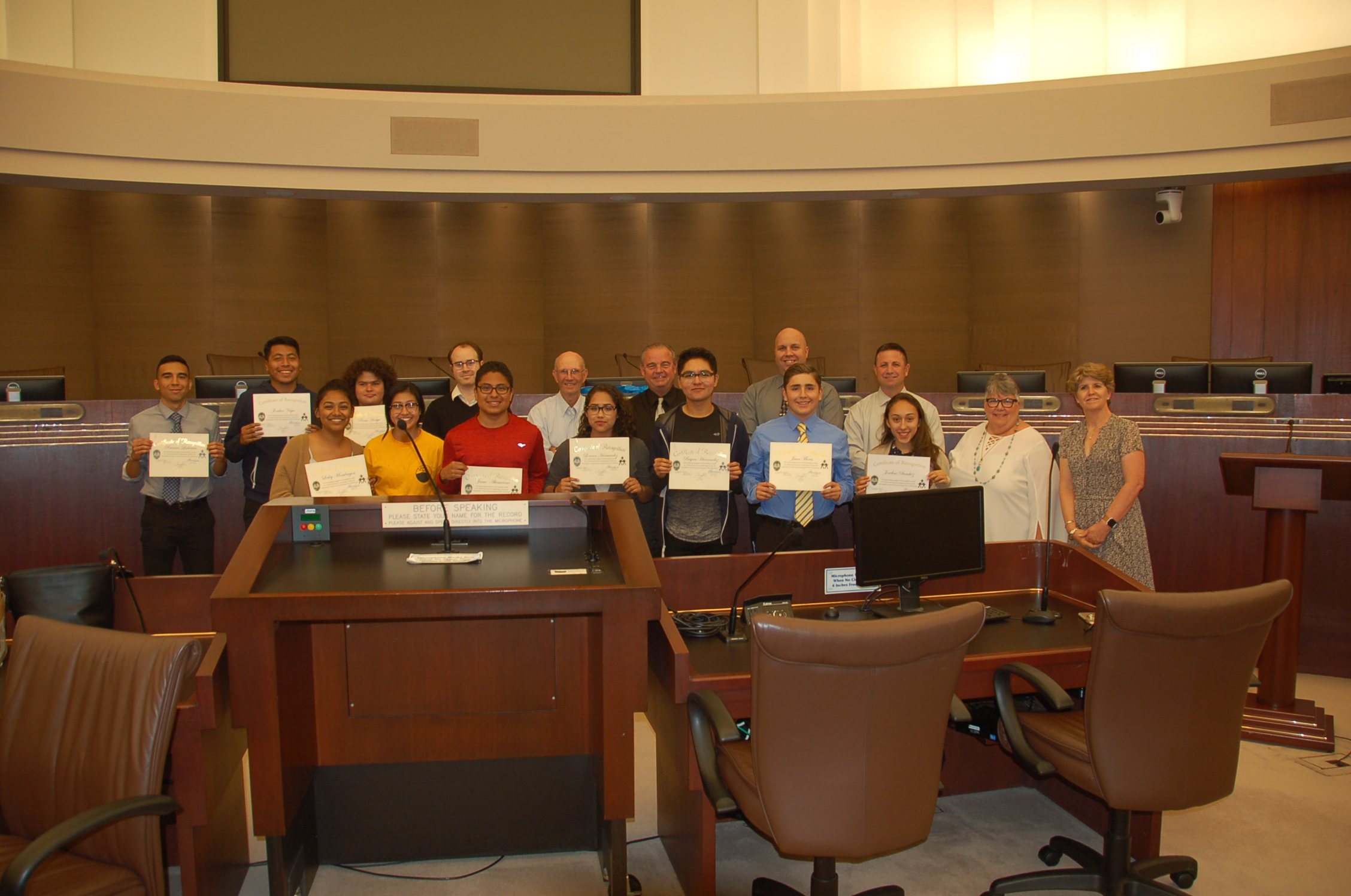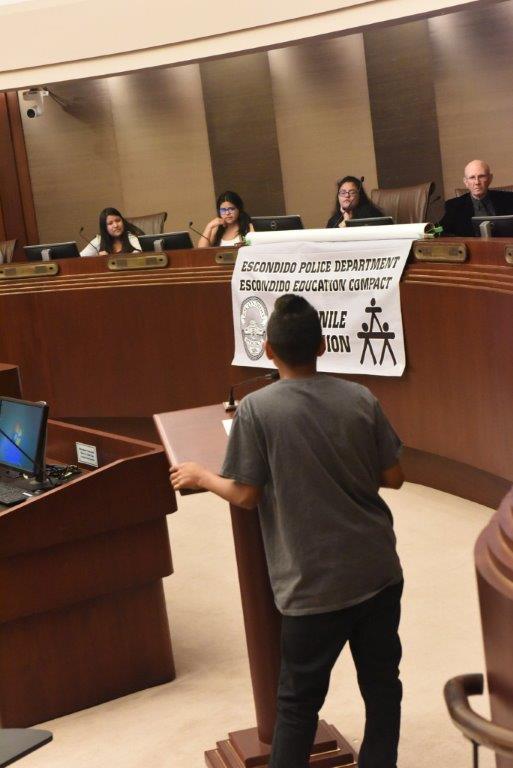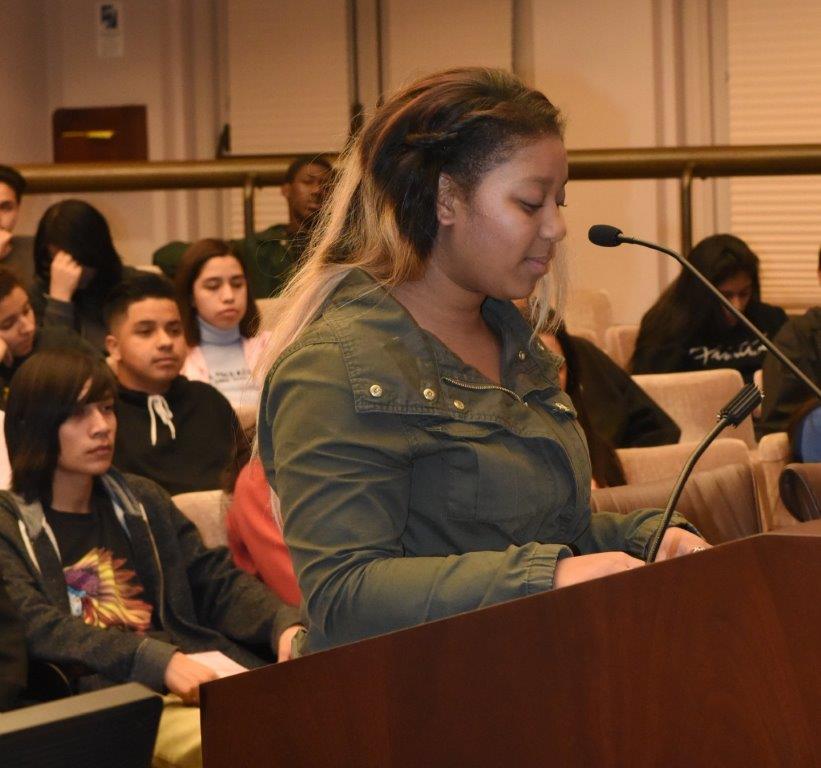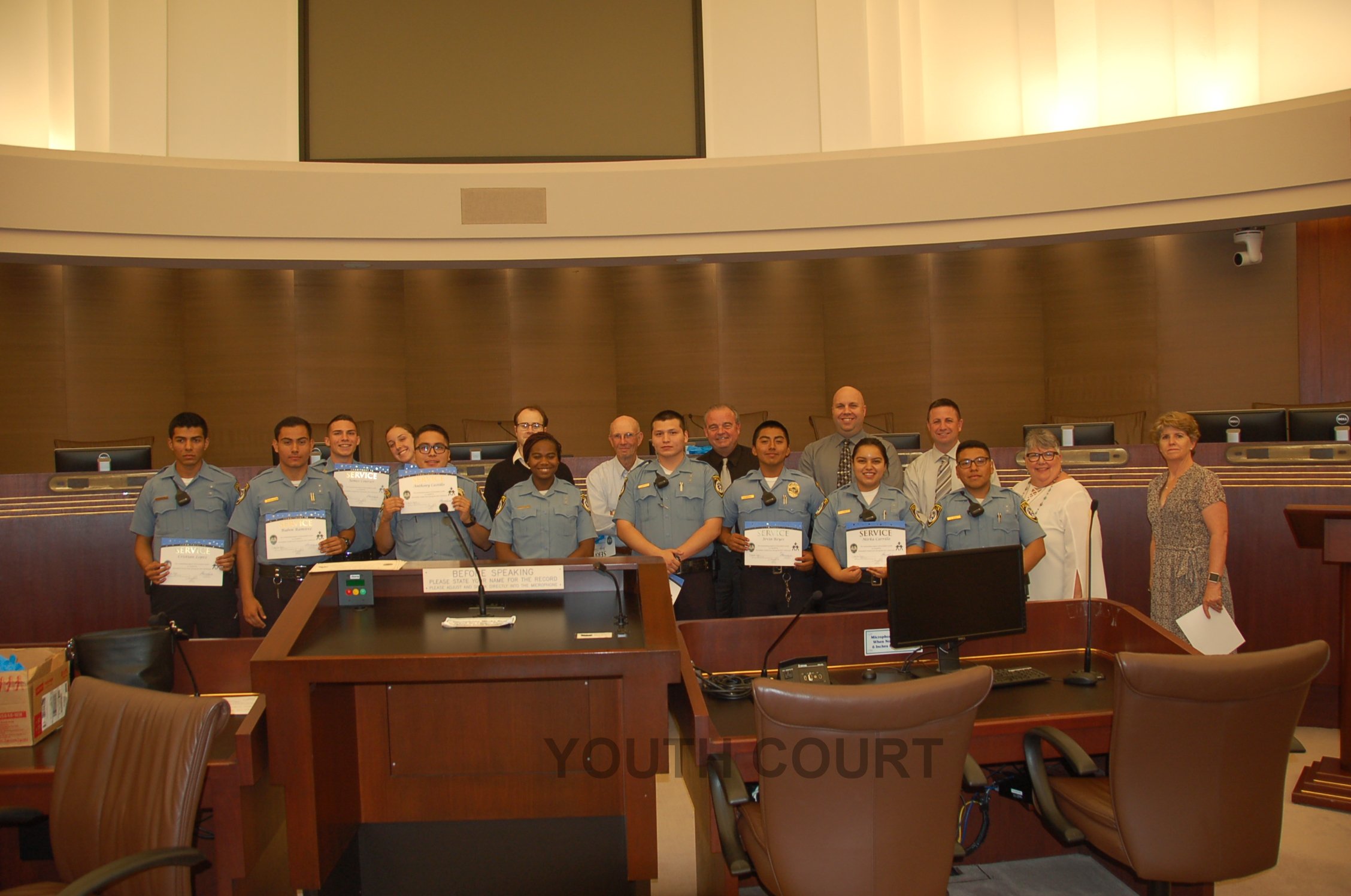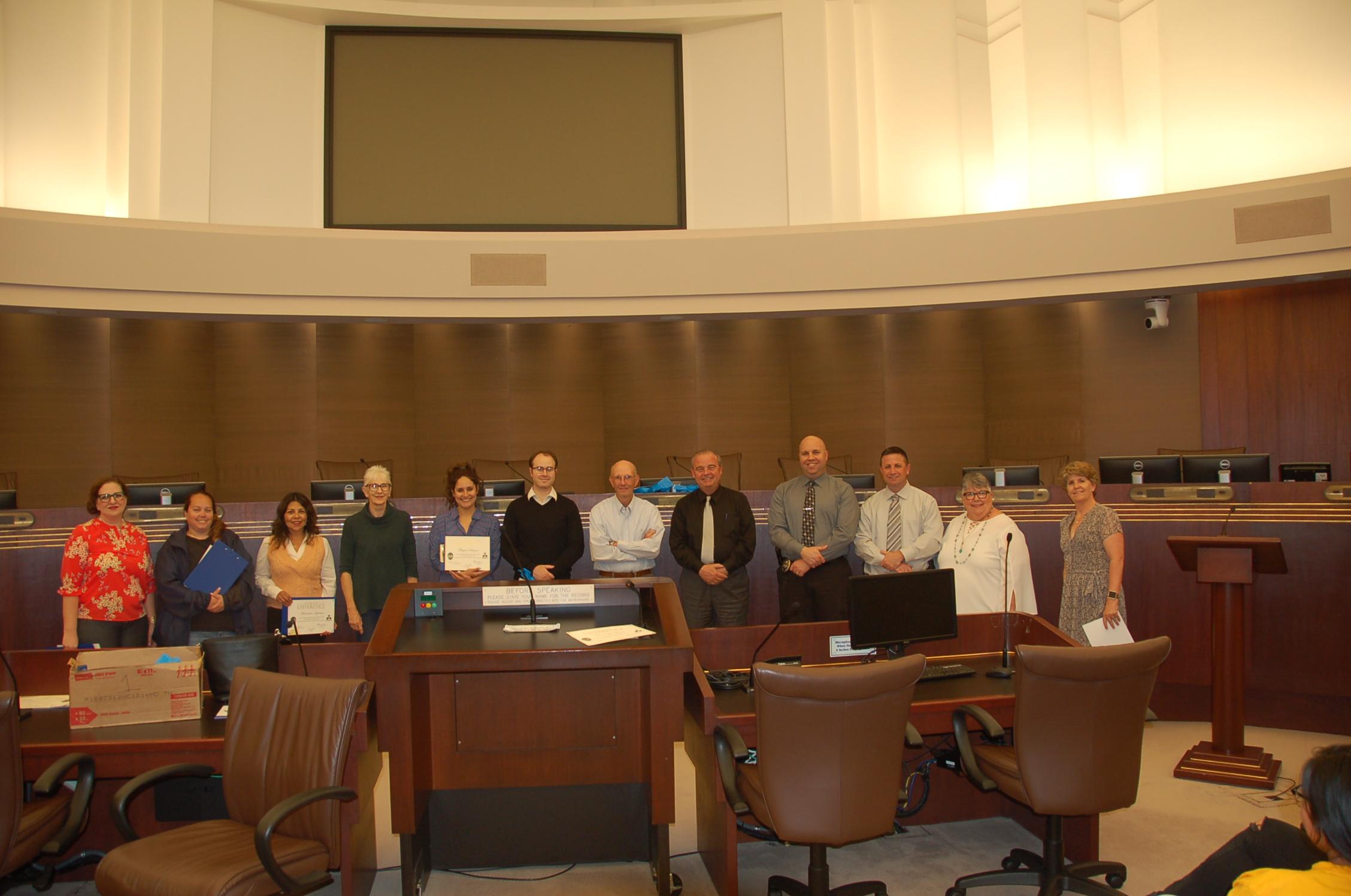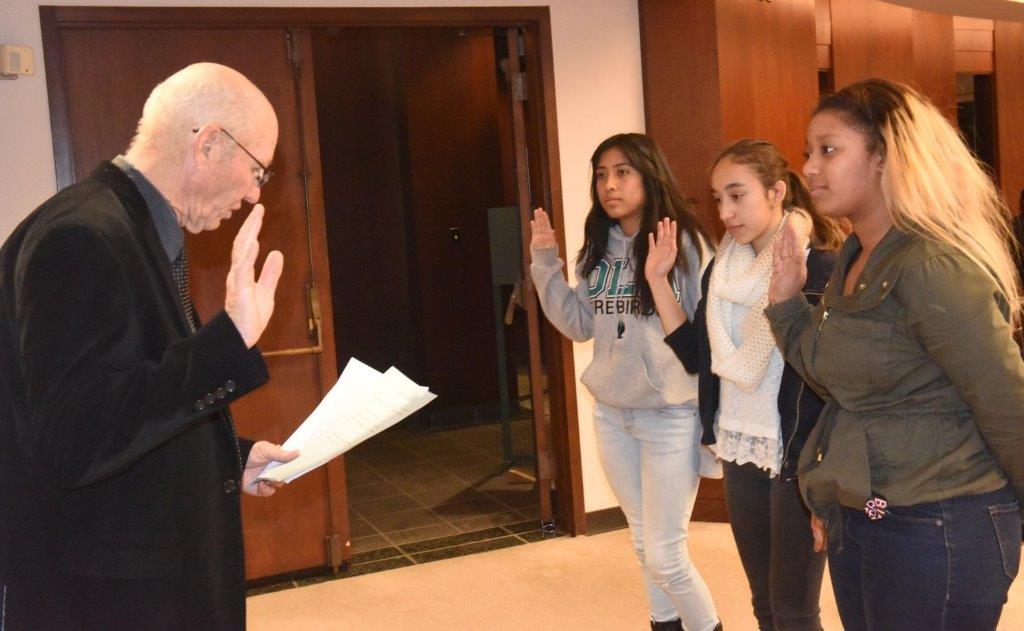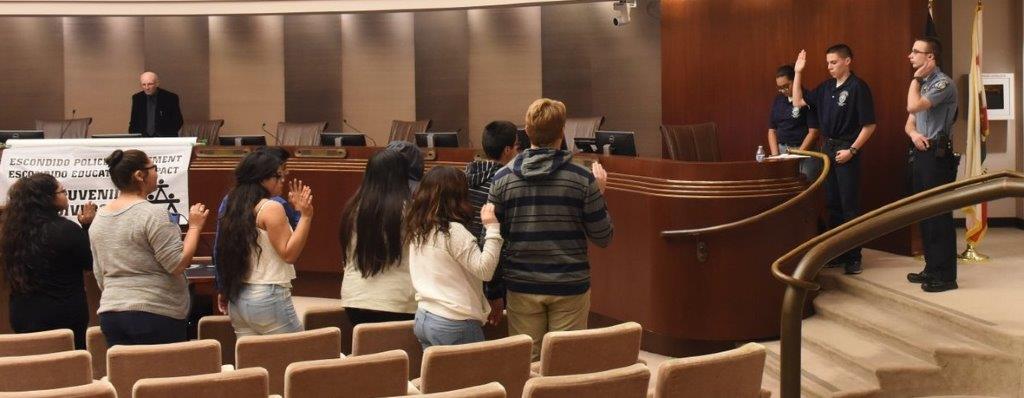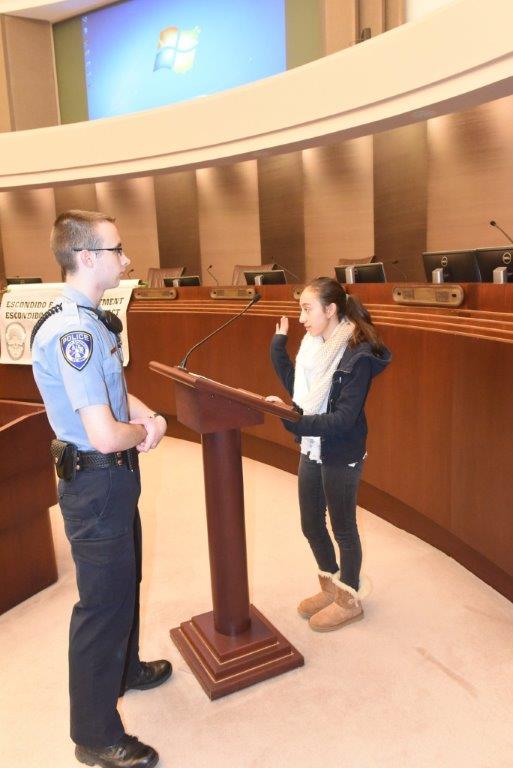Youth Court
Youth Court is a diversion program that allows youth offenders to be tried and represented by their peers at their sentencing hearing. This educational process gives youth a chance to hear and speak out for each other, while learning more about the judicial system.
A program of the Escondido Police Department in collaboration with Escondido Education COMPACT
Upcoming Opportunities!
For Questions or to rsvp contact Mary Anne Dijak
Email: MDijak@educationcompact.org
Phone: (760) 839-4515
Youth Court Key Players
youth Volunteers
Attorney
Defense or prosecution
Prepares case by speaking with youth defendant and creating opening and closing statements prior to the hearing
Recommends a sentence for the Defendant
Juror
Is presented with the case, including defendant’s testimony
Deliberates on a sentence for the offender
Bailiff
Maintains order during the hearing and in the deliberation room
Assists judge when needed
Swears-in the jury and witnesses.
adult volunteers
Compliance Monitor
Similar to a probation officer in Juvenile Court
Liaison between defendant and Youth Court
Connects defendant and family to potentially useful community resources and/or referrals
Turns in documents and reports once contract has been successfully completed
Adult Attorney
Helps attorneys prepare for their cases prior to hearing
Sits with attorney at the hearing to support them during the process
For more information, please contact:
Youth Volunteers- Jurors and Attorneys
Jackie Bahena – Escondido Education COMPACT: (760) 839-4515
Youth-Bailiffs
Explorer Program, Escondido Police Department: (760) 839-4791
Adult Volunteers- Compliance Monitor
Mary Anne Dijak, Escondido Education COMPACT (760) 839-4515
Donations or Contributions
Patty Huerta, Escondido Education COMPACT: (760) 839-4515
Youth Court's History
Escondido Youth Court had originally been part of an organization that had closed in Escondido. In 2008, this program was resurrected. Escondido Youth Court is a partnership with Escondido Police Department and Escondido Education COMPACT. COMPACT supports the Youth Court Coordinator through Youth Leadership funding supplied by the San Diego Workforce Partnership. Youth Court is a unique program that is not only a diversion program but a youth leadership program. As with the MDT, first time offenders are eligible for this program. The offenses of the juveniles are much like the offenses of the juveniles who attend the MDT and they must admit that they did commit the crime they have been accused of. State and local jurisdictions across the country are embracing teen court as an alternative to the traditional juvenile justice system for their youngest and least serious offenders. According to a study sanctioned by OJJDP, many jurisdictions report that teen court increases young offenders’ respect for the justice system and reduces recidivism by holding delinquent youth accountable for what is often their first offense. Moreover, a teen court may be able to act more quickly and more efficiently than a traditional juvenile court.
At Youth Court, the defendant is assigned an attorney and there is an attorney representing the victim. However, in this court, the attorneys are all in high school. The attorneys argue the case, just as an adult attorney would in any court. They argue their case before a jury that is also made up of high school students. The only adults involved in the process are the judge, adult attorneys who serve as advisors, and the compliance monitors. The compliance monitor serves the same role as a probation officer. However in this case compliance monitors play a more mentoring role to the youth. At the end of the hearing the youth will be sentenced. The sentence is part of the contract that they have 90 days to complete.
The Youth Court Program has proven to be very popular with high school youth looking for meaningful community service opportunities. These youth along with the offender population that are required to serve on future jury’s, naturally provides us with a diverse group of youth operating at a range of social and academic levels. This diversity forces participants to get to know students from other peer groups, schools, neighborhoods and ethnic groups. There are approximately 30 youth volunteers who attend each session. In addition, the defendants and their parents are responding well and are grateful for the opportunity to not have the offense appear on the juvenile’s record. The court’s average age of the defendant is 15 years old; however the youngest defendant was 11. This early intervention tool is successfully linking youth with services and a mentor to help get them back on the right path. After the first year, the partnership is very proud of its 80% completion rate.

